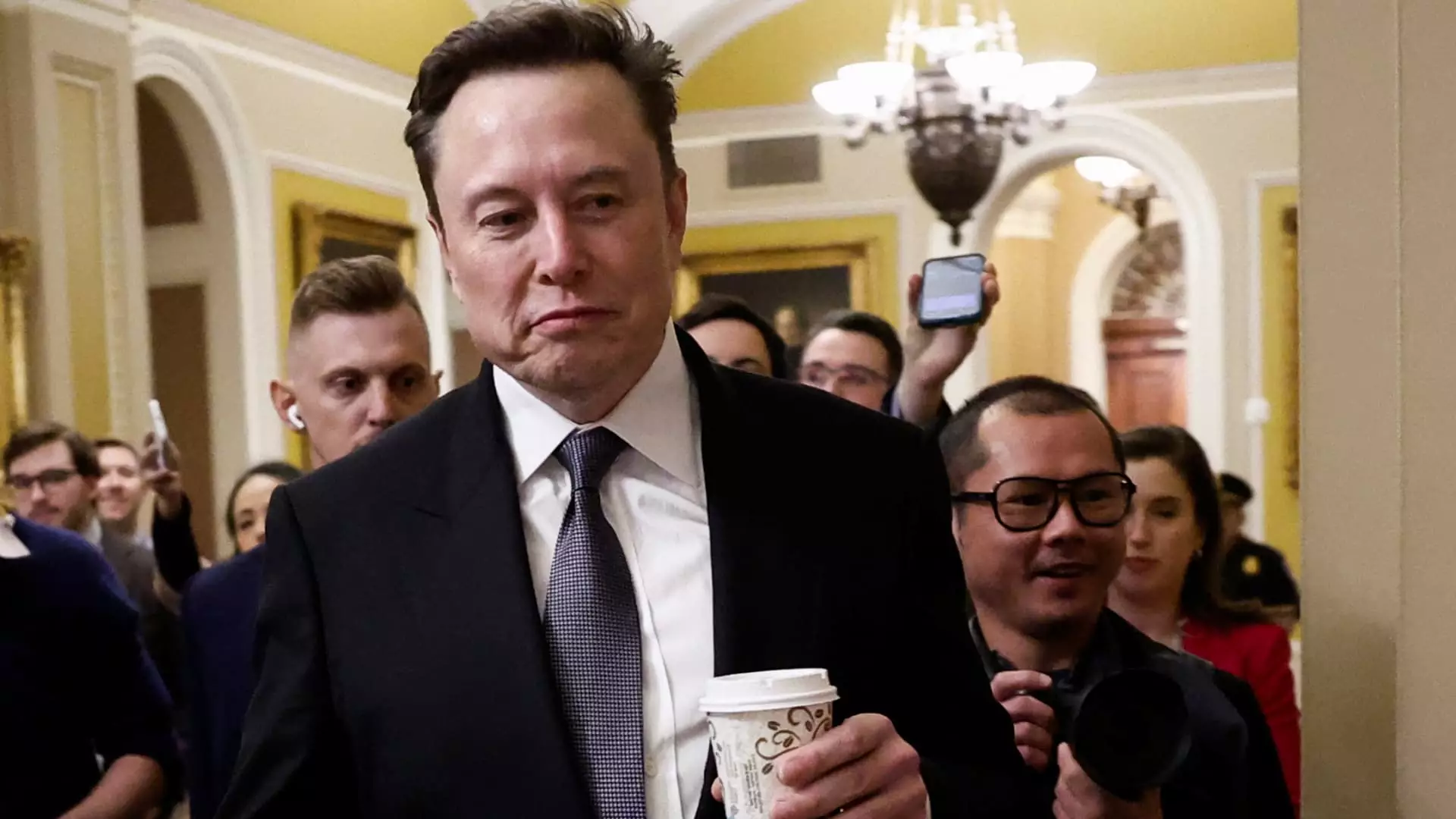In recent months, the political landscape surrounding U.S. legislation and its implications for international business has garnered significant attention. This critical analysis delves into the relationship between high-profile entrepreneurs and government decision-making, particularly focusing on Tesla and SpaceX CEO Elon Musk. Distinct actions from both sides of the political aisle illustrate how business interests can sway legislative priorities, often to the detriment of broader national security interests.
Democratic representatives, Jim McGovern and Rosa DeLauro, have publicly criticized their Republican counterparts for allegedly conceding to Musk’s pressures, which they argue led to the abandonment of a vital bipartisan government funding bill. This bill intended to regulate U.S. investments in technological advancements, particularly concerning artificial intelligence and quantum computing, which are crucial sectors for maintaining America’s competitive edge. The failure of this initiative highlights the influence that a singular corporate figure can exert over legislative processes, exacerbating partisan divides and leading to practical consequences for economic policy.
The last-minute passage of a stopgap funding bill was a necessary measure to prevent a government shutdown, masking deeper issues within Congress. McGovern argued that if the rejected provision had been included, it would have created a framework to retain technological and job growth domestically. Reflecting on this, one might wonder how the fragility of such bipartisan efforts can be so easily compromised, especially when the stakes—national security and economic stability—are so high.
Musk’s extensive dealings in China complicate this narrative further. As the only foreign automaker to have established a manufacturing plant in China without needing a local partnership, Musk enjoys unique positioning that likely influences his approach to U.S.-China relations. The continuous expansion of Tesla’s operations, including a recently launched battery plant near Shanghai, gives Musk a vested interest in maintaining amicable relations with Chinese officials. This has raised red flags among U.S. politicians about potential risks to national security, emphasizing how private enterprise can collide with public interest.
McGovern insinuated that Musk’s aspirations within China—notably developing an AI data center—could potentially compromise the safety of U.S. technological advancements. These concerns echo a broader sentiment on Capitol Hill regarding the necessity for due diligence when American tech corporations operate in foreign realms, particularly with nations that have conflicting interests.
The personal exchanges between Musk and Democratic leadership have not only played out in formal letters but extend into the realm of social media. Musk’s dismissal of DeLauro as an “awful creature” on X illustrates the polarizing dynamics of modern political discourse, where high-profile individuals leverage platforms for direct rebuttals. This trend signifies a shift in how political feedback is communicated—more confrontational, less formal, and laden with public attention.
Furthermore, as Musk has increasingly aligned himself with Republican interests, particularly in relation to former President Trump, questions arise about the ethical lines between personal and political allegiance. Musk’s financial contributions to Trump’s campaign during the 2024 cycle underscore his commitment to networking with political figures who share a favorable view of deregulation and pro-business policies. The intertwining of Musk’s business ambitions with political maneuvers creates a complex web, challenging conventional understandings of corporate governance.
As business magnates like Musk gain more influence over legislative outcomes, the ramifications for U.S. democracy and international relations cannot be understated. The willingness of politicians to alter legislative priorities based on individual business interests raises fundamental questions about accountability, ethical governance, and national security. In an age where technology and geopolitics are inextricably linked, ensuring that corporate ambitions do not undermine public policy becomes essential.
The intersection of Elon Musk’s corporate practices with U.S. legislative actions exemplifies the delicate balance that must be maintained in governance. As stakeholders in both business and government navigate these challenges, transparency and accountability will be paramount in safeguarding the nation’s interests amidst the often tumultuous waters of political maneuvering and corporate lobbying.

Leave a Reply